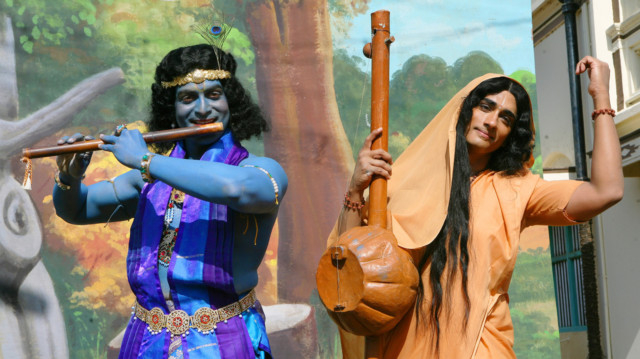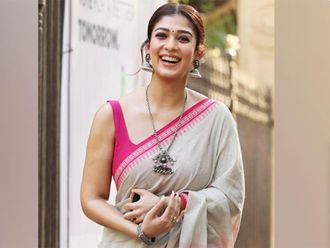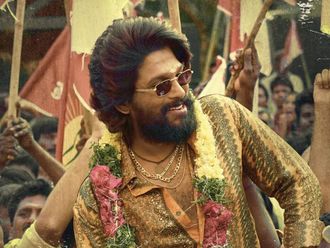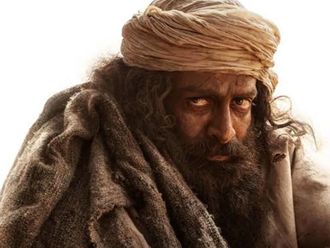
What was life on stage like in the pre-independence era in Tamil Nadu, when the big screen was unheard of?
When entertainment meant squatting on the ground and watching characters come alive on a stage; where men played female characters; where costumes and make-up were loud and actors raised their decibels so as to reach the man in the back row; where music was sweet melody, devoid of the trappings of the digital age and loud instruments; where re-recording and retakes were unheard of.
Tamil director Vasantabalan, noted for Veyil, (a National award winner that was screened at Cannes Film Festival in 2007) and Angadi Theru, (another critically acclaimed film) transports viewers on an enchanting journey with Kaaviya Thalaivan.
This period drama is about a travelling drama group, managed by Sivadas Swamigal (Nasser). The lead players here are Kaliappa Bhagavathar (Siddharth) and Gomathi (Prithviraj), who perform together on stage, sometimes as a pair, and at other times as the antagonist and protagonist.
Kali and Gomathi, having grown up under Swamigal’s care since childhood, share a close bond, akin to siblings. While Kali is playful yet earnest, Gomathi is a dedicated young man who strictly follows the do’s and don’t’s of his guru, striving hard for his guru’s appreciation. But Swamigal seems to have a soft spot for Kali, making Gomathi jealous. Slipping with ease into Gomathi’s skin is Malayalam star Prithviraj.
As emotions inside Gomathi battle between pride and jealousy, Prithviraj portrays them with finesse, conveying a lot through his eyes. Before Gomathi realises it, the green eyed monster has consumed him.
Playing the perfect tango to Gomathi is Siddharth, completely submerging himself in Kali. While Kaaviya Thalaivan rides on the shoulders of Prithviraj and Siddharth, the film stands tall owing to the laudable performances of the supporting cast. Veteran actor Nasser is convincing as the doyen of this theatre group. Thambi Ramiah, as the Vadhyar training young students, makes his presence felt throughout. Ponvannan and Singam Puli do justice to their roles.
Vedhika as Vadivambal, the only woman in Swamigal’s troupe, and Anaika Soti as Princess Rangamma, who is in love with Kali, are perfectly cast.
Vadivambal is inspired by legendary singer-actor K.B. Sundarambal. Vedhika, after Bala’s Paradesi, proves that in the hands of a good director, she is mere putty. Anaika’s expressions are cute and a talent to watch out for.
Complementing this beautiful story is AR Rahman’s music. Another plus is Nirav Shah’s camera work.
Vasantabalan’s daring attempt to narrate a period drama is refreshing and a pleasant change from the routine fare doled out in Tamil cinema.












